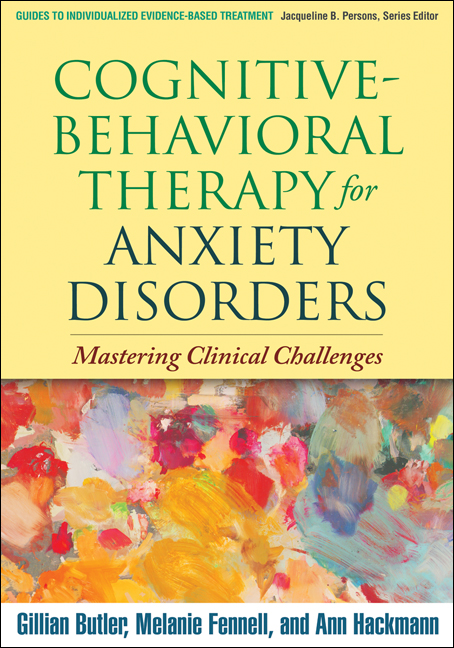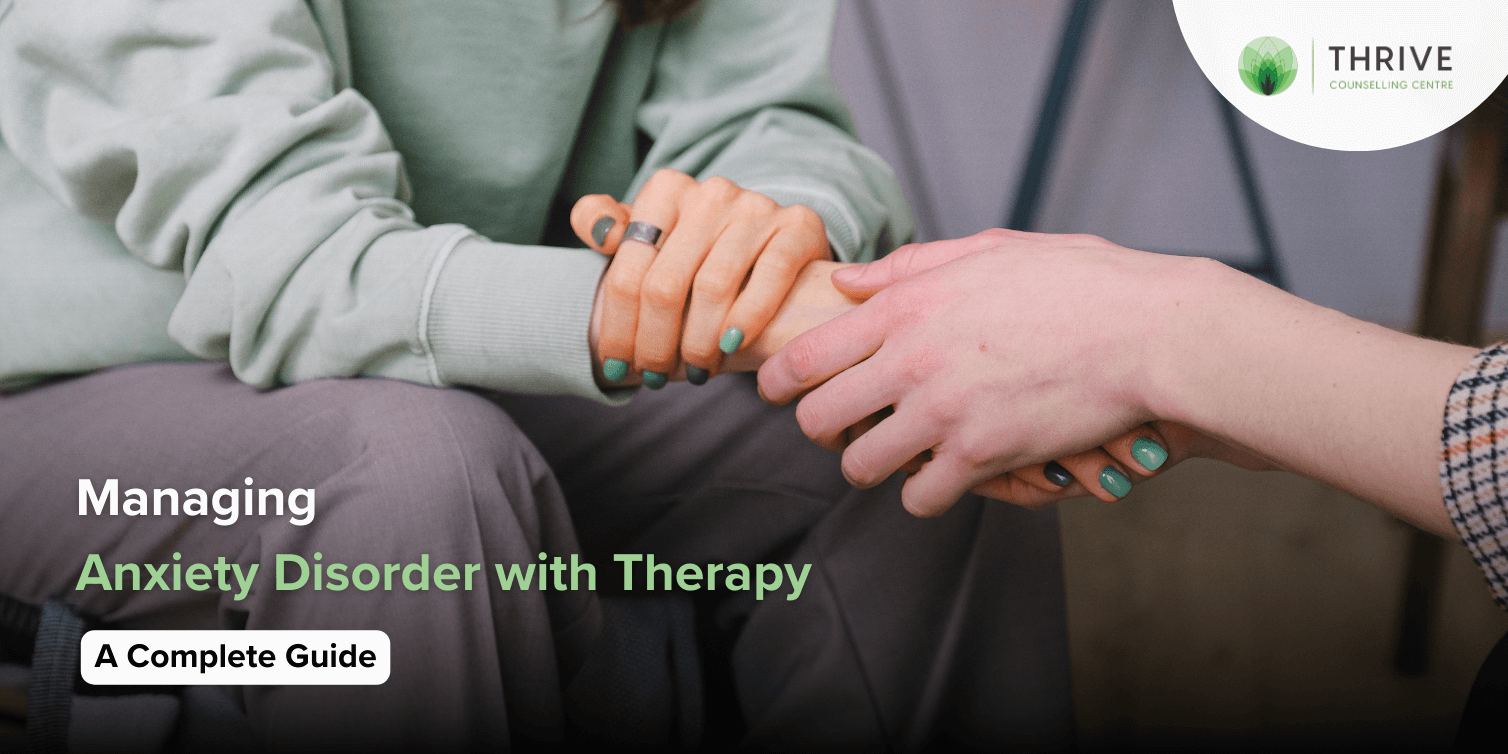Exploring Different Methods in Coaching for Anxiousness Problem for Lasting Adjustment
When taking on stress and anxiety disorders, it's important to explore a variety of counseling methods. Each approach supplies unique understandings and tools to aid you handle your signs and symptoms properly. You could locate that incorporating strategies can generate the ideal outcomes. Recognizing the subtleties of these methods is key to promoting enduring modification. What if the right mix could launch a new degree of psychological wellness for you?
Understanding Anxiousness Problems: A Short Summary
Anxiety problems, which impact millions of individuals worldwide, can substantially affect everyday life. You could experience frustrating feelings of anxiety or fret that seem unmanageable. These feelings can bring about physical signs like a racing heart, sweating, and even dizziness. Common sorts of stress and anxiety problems include generalized anxiousness problem, panic attack, and social anxiousness problem. Each has unique signs, however they all share a propensity to disrupt your routine and relationships.Understanding the origin triggers of your anxiety is crucial. It could originate from genes, brain chemistry, or life experiences. Acknowledging your triggers can aid you handle your actions better. It is essential to bear in mind that you're not the only one in this struggle. Many individuals deal with comparable obstacles, and looking for aid is a strong action towards sensation much better. By learning regarding anxiety conditions, you're already on the course to understanding and managing your problem extra effectively.
Cognitive-Behavioral Treatment: Testing Unfavorable Thought Patterns
In Cognitive-Behavioral Therapy, you'll begin by identifying the adverse thought activates that contribute to your stress and anxiety. You'll function on changing them with even more favorable choices when you acknowledge these thoughts. With each other, you'll construct efficient coping strategies to assist manage your anxiousness in daily scenarios.
Identifying Unfavorable Thought Triggers

When you encounter moments of distress, recognizing the particular triggers behind your negative ideas can be essential in taking care of anxiety. Start by taking note of situations that provoke feelings of worry or fear. Is it a crowded area, an approaching due date, or a discussion with certain people? Write these circumstances in a journal. This will certainly assist you recognize patterns in your thinking. Also, notice physical sensations that accompany your adverse ideas, like a racing heart or rigidity in your chest. By pinpointing these triggers, you get understanding right into what's sustaining your stress and anxiety. Comprehending these connections is the primary step in challenging those thoughts and eventually regaining control over your emotional feedbacks.
Changing Ideas With Positives
Challenging unfavorable thought patterns is an important action in changing your state of mind and minimizing anxiety. You might often find yourself trapped in cycles of insecurity or disastrous thinking. Instead of allowing these thoughts dictate your feelings, practice replacing them with favorable affirmations or practical options. When you believe, "I can't manage this," change it to, "I can handle challenges one step at a time." This basic modification can substantially impact your psychological state. Frequently recognizing and countering these negative thoughts assists develop a healthier internal discussion. Keep in mind, it requires time and initiative, however consistently exercising this technique can bring about lasting adjustment, equipping you to deal with anxiousness with restored confidence and strength.
Building Coping Techniques With Each Other
Replacing adverse ideas is just the beginning of taking care of stress and anxiety efficiently. To develop long-term change, you need to build coping approaches that encourage you. Cognitive-Behavioral Therapy (CBT) aids you identify and challenge those purposeless idea patterns. Together, you and your counselor can explore just how these ideas influence your sensations and behaviors.Start by establishing useful techniques, like journaling or mindfulness workouts, that permit you to face anxiousness head-on. When you face your concerns progressively, you'll discover to respond in different ways.
Mindfulness and Acceptance-Based Approaches: Growing Present-Moment Understanding
As you navigate the intricacies of anxiety, integrating mindfulness and acceptance-based strategies can significantly enhance your capability to grow present-moment understanding. By focusing on the right here and now, you'll discover that you can observe your ideas and feelings without judgment (Counseling services for anxiety). This practice assists you acknowledge your anxiety without really feeling overwhelmed by it.Engaging in mindfulness workouts, such as deep breathing, body scans, or directed meditations, enables you to ground yourself in your existing experience. Acceptance-based strategies urge you to embrace your emotions instead than combat versus them. When you approve your feelings, they lose their power over you.Incorporating these methods into your everyday routine can change exactly how you reply to anxiety. You'll develop strength and discover to browse demanding scenarios with higher ease. Eventually, growing present-moment awareness lays the foundation for enduring modification, encouraging This Site you to lead an extra meeting life
Direct Exposure Therapy: Facing Concerns Slowly
Direct exposure treatment assists you face your concerns in a progressive means, making it much less overwhelming. You'll learn strategies to face anxiety-provoking scenarios detailed, while additionally constructing coping strategies to handle your reactions. This technique encourages you to take control and minimize stress and anxiety in time.
Progressive Direct Exposure Strategies

When facing stress and anxiety, gradually challenging your anxieties can be an effective means to gain back control. This technique, called steady exposure, entails gradually exposing on your own to the situations or objects that trigger your stress and anxiety. Begin with less challenging situations and gradually function your means up to more difficult ones. If you're terrified of public speaking, you may start by speaking in front of a mirror, then proceed to sharing thoughts with a pal, and eventually deal with a little team. Each step helps desensitize you to the anxiety, building your confidence with time. Keep in mind, it's important to rate counselling for anxiety yourself and commemorate tiny success as you relocate through this procedure, reinforcing your capability to manage anxiousness effectively.
Structure Coping Strategies
Structure effective coping methods is important for managing stress and anxiety, specifically as you confront your concerns slowly - Counseling services for anxiety. One powerful technique is exposure treatment, where you begin by encountering your anxieties in a regulated manner. Begin with much less frightening situations and gradually work your method approximately even more challenging scenarios. This progressive exposure assists desensitize you to anxiousness triggers, making them less overwhelming.Incorporate relaxation techniques, such as deep breathing or mindfulness, to calm your mind during exposure. Track your development, celebrating small victories in the process to boost your confidence. Bear in mind, it's all right to take your time; the objective isn't excellence however stable improvement. By building these strategies, you'll encourage on your own right here to browse anxiousness and accept life much more fully
Psychodynamic Treatment: Discovering Origin of Anxiety
Psychodynamic treatment checks out the unconscious mind, revealing the source of your anxiety. By analyzing your thoughts, sensations, and past experiences, this approach aids you discover underlying conflicts and unresolved concerns that may add to your present anxiety. You'll deal with a therapist to investigate childhood years experiences, connections, and emotional patterns that form your reactions today.As you gain understanding into these deeper layers of your subconscious, you'll begin to acknowledge just how past events affect your present behavior. This understanding can bring about catharsis, permitting you to refine emotions you might have suppressed.Through the healing partnership, you can likewise determine defense devices that may have developed with time, using a clearer course to alter. Inevitably, psychodynamic therapy furnishes you with the devices to resolve your stress and anxiety at its core, advertising long lasting makeover in your emotional wellness.
Alternative and integrative Strategies: Combining Methods for Greater Efficiency
Integrating different healing techniques can improve your trip toward handling anxiety a lot more successfully. By incorporating elements from cognitive-behavioral therapy, mindfulness methods, and all natural approaches, you can develop a customized approach that addresses your unique requirements. As an example, you may use cognitive-behavioral methods to test negative thought patterns while including mindfulness workouts to ground yourself in today moment.Additionally, discovering alternative techniques such as yoga or reflection can advertise relaxation and lower anxiousness symptoms. This blend enables you to develop greater self-awareness and resilience.Experimenting with these diverse methods can help you discover what reverberates most with you. Bear in mind, it has to do with locating a synergy that works, instead of adhering to a single technique. This integrative approach not just supplies instant alleviation yet also promotes long-term abilities for taking care of stress and anxiety, equipping you to recover control over your life.
The Duty of Support Systems: Structure Durability Through Connection
While it may seem that managing anxiousness is a singular trip, having a strong support system can play a vital role in your durability. Surrounding on your own with understanding good friends, household, or support system creates a secure space where you can honestly share your feelings and experiences. When you get in touch with others, you advise yourself that you're not the only one in this struggle.These connections offer inspiration and can supply useful coping approaches that have actually benefited others. It's additionally a chance to gain perspective; friends can assist you see situations in a different way, reducing feelings of isolation.Moreover, psychological support promotes a feeling of belonging, which can greatly minimize anxiousness symptoms. By leaning on your support system, you can build durability and take on obstacles better. Keep in mind, getting to out for aid signifies stamina, and it can make all the distinction in your trip toward managing stress and anxiety.
Regularly Asked Inquiries
What Are the Typical Signs And Symptoms of Anxiousness Disorders?
You might experience restlessness, fatigue, problem concentrating, irritation, muscle mass stress, and rest disruptions. Physical symptoms can include rapid heartbeat, sweating, and shivering. Identifying these indicators early can help you seek proper assistance and therapy.
How Much Time Does Therapy Commonly Last for Anxiousness Conditions?
Therapy for stress and anxiety disorders usually lasts anywhere from a couple of weeks to a number of months. It really depends upon your individual needs, development, and the strategies your specialist utilizes to assist you handle your anxiousness effectively.
Can Drug Be Utilized Together With Therapy for Anxiety?
Yes, medication can most definitely be used together with therapy for stress and anxiety. Combining both strategies usually enhances treatment performance, aiding you manage signs and symptoms while discovering underlying issues via counseling (Counseling services for anxiety). Always consult your medical care copyright for individualized recommendations
Exist Self-Help Techniques for Handling Stress And Anxiety?
Yes, there are numerous self-help approaches for taking care of anxiousness. You can practice mindfulness, participate in routine workout, preserve a balanced diet, establish a routine, and use deep breathing methods to help in reducing stress and anxiety signs and symptoms successfully.
How Do I Know if I Required Professional Assistance for Anxiousness?
